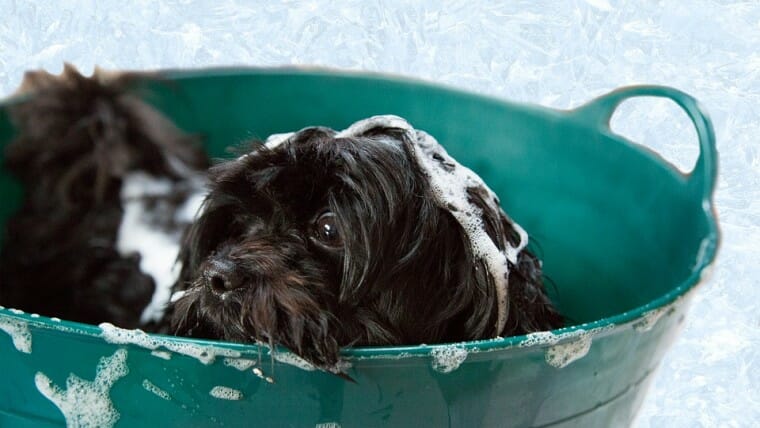What You Need to Know Before Bringing Your New Puppy Home
Bringing a new puppy into your home is a joyous occasion, filled with excitement and endless cuddles. As you embark on this journey of companionship, it’s essential to lay a strong foundation for a happy and healthy life for your furry friend. At Puppy Play and Stay, we understand the unique challenges and joys that come with welcoming a new puppy. Here are some essential tips and guidelines to ensure a smooth transition for both you and your newest family member.
Puppy-Proof Your Space
- Remove Hazards: Puppies are curious explorers, so eliminate potential dangers by securing electrical cords, toxic plants, and small objects that could be swallowed.
- Designate Safe Spaces: Create a cozy, safe area for your puppy to retreat to when they need rest. This can be a crate or a comfortable bed in a quiet corner.
Veterinary Care is Key
- Schedule a Vet Visit: Book an appointment with your veterinarian for a comprehensive health checkup and to discuss vaccinations, deworming, and preventive care.
- Microchipping: Consider getting your puppy microchipped. This extra layer of identification is crucial if your furry friend ever goes on an unplanned adventure.
Nutrition Matters
- Quality Diet: Consult your vet to choose the right puppy food for your dog’s breed and size.
- Scheduled Feeding: Establish a consistent feeding schedule to regulate your puppy’s digestive system. This also helps prevent overeating, prevents resource guarding because they can count on the timing of their next meal, and many other benefits.
Begin Training Early
- Basic Commands: Start with fundamental commands like sit, stay, and come. Use positive reinforcement techniques such as treats and praise.
- Consistency is Key: Be patient and consistent in your training efforts. The more consistent you are, the quicker your puppy will catch on.
- Patience is Critical: Patience is fundamental to building trust between you and your puppy. Just like humans, puppies make mistakes as they learn. Patience allows you to tolerate these errors without becoming frustrated. Impatience may lead to frustration and, in some cases, punishment. This can create negative associations with training and erode the puppy’s willingness to learn. Patience allows for a positive and supportive training environment.
Socialization is Essential
- Meet New Friends: Introduce your puppy to various people, environments, and other dogs. Socialization is crucial for a well-adjusted adult dog.
- Positive Experiences: Make these encounters positive and rewarding, reinforcing positive behavior with treats and affection.
Grooming Rituals
- Introduce Early: Gradually introduce your puppy to grooming activities such as brushing and nail trimming.
- Regular Sessions: Establish a grooming routine based on your puppy’s breed and coat type.
Exercise and Play
- Burn Off Energy: Puppies are bundles of energy. Regular playtime and exercise are essential for their physical and mental well-being.
- Breed Consideration: Adjust exercise levels based on your puppy’s breed and energy levels.
Potty Training
- Consistent Schedule: Establish a routine for bathroom breaks. Take your puppy outside after meals, upon waking, and before bedtime.
- Positive Reinforcement: Praise and reward your puppy when they eliminate in the designated area.
Health Monitoring
- Observant Care: Pay attention to your puppy’s behavior, eating habits, and bathroom habits. Any signs of illness or discomfort should prompt a call to your vet.
- Regular Checkups: Schedule regular veterinary checkups to ensure your puppy is growing and developing as expected.
Safety First
- Identification: Ensure your puppy has proper identification, including a collar with an ID tag. Microchipping adds an extra layer of security.
- Supervision: Keep a close eye on your puppy, especially during the early stages. This helps prevent accidents and ensures their safety.
Love and Attention
- Quality Time: Puppies thrive on love and attention. Spend quality time bonding with your new companion. This strengthens your relationship and builds trust.
Sweet Dreams
- Puppy Sleep Patterns: Puppies, much like human babies, need plenty of sleep for proper growth and development. On average, a puppy can sleep anywhere from 12 to 16 hours a day. Provide a comfortable and quiet space for your puppy to nap, ensuring they get the rest they need for boundless energy during waking hours. Be mindful of creating a consistent sleep routine to help your puppy adjust to their new home.
Welcoming a new puppy into your home is a thrilling adventure, and with the right guidance, it can be a rewarding experience for both you and your furry friend. At Puppy Play and Stay, we understand the unique needs of puppies and are here to support you on this journey. If you ever need a helping hand or a safe, fun environment for your puppy to play and learn, consider our services as an extension of your puppy parenting team. Together, we’ll create a strong foundation for a lifetime of love and happiness.


